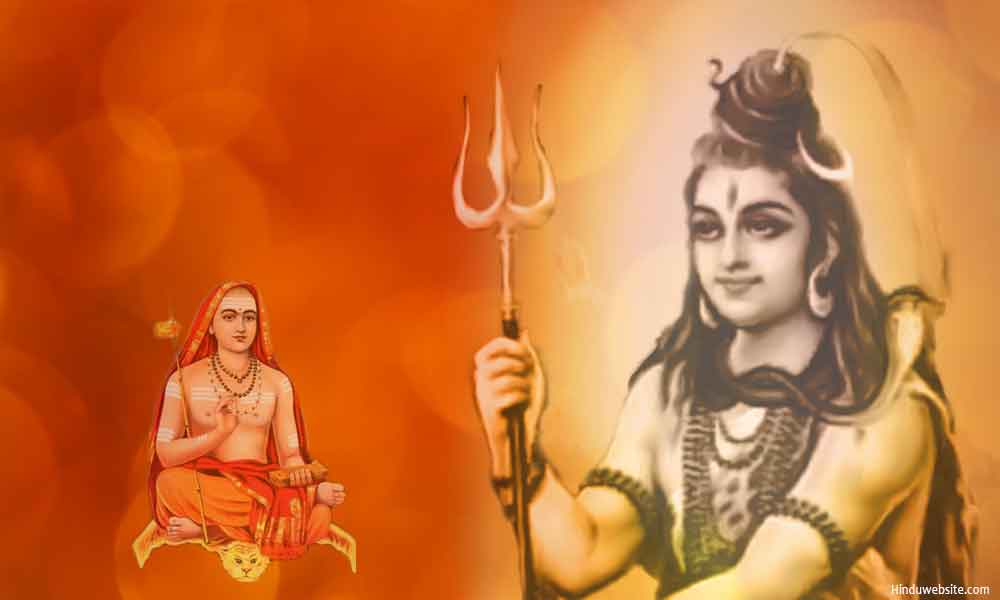
Sadhana Panchakam, Instruction 15

Index | Intro | 1 | 2 | 3 | 4 | 5 | 6 | 7 | 8 | 9 | 10 | 11 | 12 | 13 | 14 | 15 | 16 | 17 | 18 | 19 | 20 | 21 | 22 | 23 | 24 | 25 | 26 | 27 | 28 | 29 | 30 | 31 | 32 | 33 | 34 | 35 | 36 | 37 | 38 | 39 | 40 | Read with Kindle Unlimited |
2.7. Earnestly ask him about the One imperishable Brahman
“Brahmaikākṣaram” may mean the one, imperishable (akshara) Brahman, or Aum, the one syllable (akshara) which represents Brahman. Either way, the purport of the instruction is the same. Having served the teacher well with humility and faith and having gained his trust and confidence, the student shall now earnestly pray to him to teach him the knowledge of Brahman or Aum, which is Brahman only in syllabic form (askhara brahma).
Brahman is personification of the Vedas. He is their source too. The sacred knowledge of liberation and all revelatory knowledge which qualifies as shruti emanates from him only. Unlike other deities, he is not a being but the highest, absolute and infinite reality and indivisible pure consciousness, the sum of all and the goal of liberation. By attaining him one becomes liberated and joins the ranks of the purest beings who live eternally absorbed in his consciousness in a state of oneness. Isvara, the lord of the universe, is his personification only in the field of Nature. By worshipping Isvara or his purest manifestations, one can attain Brahman. Those who worship the lower gods, go to them, but those who worship Isvara or his purest manifestations go to Brahman only.
A teacher will not impart that highest knowledge, unless he is satisfied that the student is mentally and spiritually ready for it. If he obliges to the student’s request and agrees to teach him the secret knowledge of Atman and Brahman, it is an indication that the student has progressed well on the path and succeeded in his initial effort to qualify for the knowledge with sincere practice and right attitude.
A teacher is not supposed to teach the knowledge of Brahman or liberation, unless the student earnestly seeks it and asks for it. He proves his sincerity, interest and willingness through perseverance by asking questions and seeking answers until his doubts are clear. Hence, you will find that in many scriptures of Hinduism, knowledge is presented as questions and answers or as a dialogue. However, it is not necessary that the teacher should always respond. It depends upon his discretion. If he thinks that the student is frivolous or not ready, he may remain silent or ignore him. Alternatively, he may give him answers which he can understand.
If you do not have a teacher, you may look for answers from alternative sources by referring to scriptures or asking the people you know. If you have a strong resolve and if you have firm faith, the universe will cooperate with you and help you find answers by creating necessary conditions. As stated before, many teachers will appear in your life in numerous guises and help you on the path according to your devotion, sincerity, faith and aspiration.
Suggestions for Further Reading
- Ashtavakra Samhita Translation and Commentary
- The Wisdom of the Bhagavadgita
- The Wisdom of the Upanishads
- 22 Minor Upanishads
- Shiva Sutras, The Aphorisms of Shiva
- The Yoga Sutras - A Brief Summary by Chapter
- Atmabodha - Knowledge of Self
- Yoga Vashisht, The Abridged Version
- Gitanjali - By Tagore
- Confucian Analects
- The Garuda Purana
- How To Remain Steadfast on the Spiritual Path
- Famous Quotations on Spirituality
- Basic Spirituality for Worldly People
- How To Find Peace Within Yourself
- The Self or Soul As Pure Consciousness
- Self-knowledge, Difficulties in Knowing Yourself
- Moksha or Liberation in Hinduism
- Types of Knowledge or Jnana in Hinduism
- Essays On Dharma
- Esoteric Mystic Hinduism
- Introduction to Hinduism
- Hindu Way of Life
- Essays On Karma
- Hindu Rites and Rituals
- The Origin of The Sanskrit Language
- Symbolism in Hinduism
- Essays on The Upanishads
- Concepts of Hinduism
- Essays on Atman
- Hindu Festivals
- Spiritual Practice
- Right Living
- Yoga of Sorrow
- Happiness
- Mental Health
- Concepts of Buddhism
- General Essays